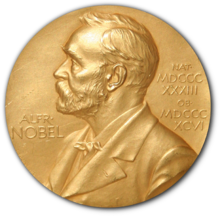Friday, January 03, 2014
Education of a Nobel Laureate on Gun Control
In the early 1980's, I found myself working on a graduate degree at the University of Wisconsin. The University had a Nobel laureate among the faculty, Dr. Howard Temin. I had already made the decision to fight for the second amendment. Although I thought the cause was lost, I could not in good conscience give up. I could not live with myself if I did not do what I could to preserve the Constitution and the rule of law. I had just finished a tour of duty, I had taken an oath, and I had meant it.
It was a vastly different time. Florida had not passed concealed carry. The demographics looked bad. The number of hunters was falling, and it was hard to see how we could energize sufficient second amendment supporters without a new generation of hunters. There was no Internet. There was no conservative talk radio. I took the formation of CNN as a hopeful sign that we might get some diversity in the media. Personal computers were just starting. I had a friend who ran an IBM 360 in his basement as his PC. I learned to program on cardboard punch cards.
One day, reading the local paper, I saw a letter to the editor from Dr. Temin. He was pushing for more infringements on the second amendment, and his assumptions were simply wrong, so I decided to see if I could enlighten him. Being able to place, "Nobel laureate" at the end of a letter to the editor is a powerful argument from authority, and I wanted to stop his misinformed but politically correct attacks.
For those of you who do not know, Madison, Wisconsin is sometimes known as Berkley, Midwest. Progressive politics is endemic to the academic environment. I suspected that the Nobel Prize winner had simply inhaled his opinions about guns and gun legislation with the overall political attitude on campus. I have found that it is almost never worthwhile to disrespect the opposition, especially when you know little about them. I respectfully telephoned Dr. Temin and questioned him about his letter to the editor. I had a copy of Don Kates' book, "Restricting Handguns: The Liberal Skeptics Speak Out". It had only been out for a couple of years, and it was full of powerful and nuanced articles that tore apart the progressive premises for "gun control", which at the time, meant only "handgun control".
In my short conversation with the Nobel laureate, I found that he had done no research on the subject, and asked if he would be willing to look at a book about it that I could lend him. He said yes. I met him when I delivered the book. You could see the intensity in the man; he was focused, focused like an Olympic athlete. His life was organized around his research, his time was extremely valuable, he spent his life on what he believed to be important. I have often wondered if someone else had asked him to write the letter to the editor.
Two weeks later, I asked if he had finished the book. He said that I could pick it up. I did so, and when I was at his office, I asked him if he had read it. He said that he had skimmed through it. I asked him if he had learned anything. He said "I learned not to write about things that I do not know anything about." I never saw another letter to the editor from him.
I learned a few things from this experience. First, that much of our opposition is operating from pure ignorance. Everyone is ignorant. "We are all just ignorant about different things", as Mark Twain once said. The second was a reinforcement that it pays to respect someone who disagrees with you. Maybe they do not deserve your respect, but that is not an easy or quick thing to establish. It also pays to try to get inside of your opposition's head. I knew that the Nobel laureate was a scientist, a good one. What real scientist can resist looking at data that he has not seen? I had not read Dale Carnegie yet, but it only made sense to make Dr. Temin's assimilation of information easy and non-confrontational.
While this was not a momentous victory in the battle to restore the second amendment, it was a victory. No more letters to the editor appeared pushing for more infringements with "Nobel laureate" at the end. It is of such small events that real victories are made.
Don Kates deserves a great deal of credit. He is still contributing valuable research. His book was a turning point, developing serious arguments in a format that academics could easily understand and accept. He is the first that I know of who started to recruit and encourage people to write academic articles for law journals, documenting the history of the second amendment, and destroying the "progressive" mythology that had been built about it since 1905.
©2014 by Dean Weingarten: Permission to share is granted when this notice is included.
Link to Gun Watch
Subscribe to:
Post Comments (Atom)







1 comment:
There is a state of militant ignorance at work which proudly resists all enlightenment. To do otherwise would mean being cast out of the flock and it's a rare liberal who will risk it.
Post a Comment